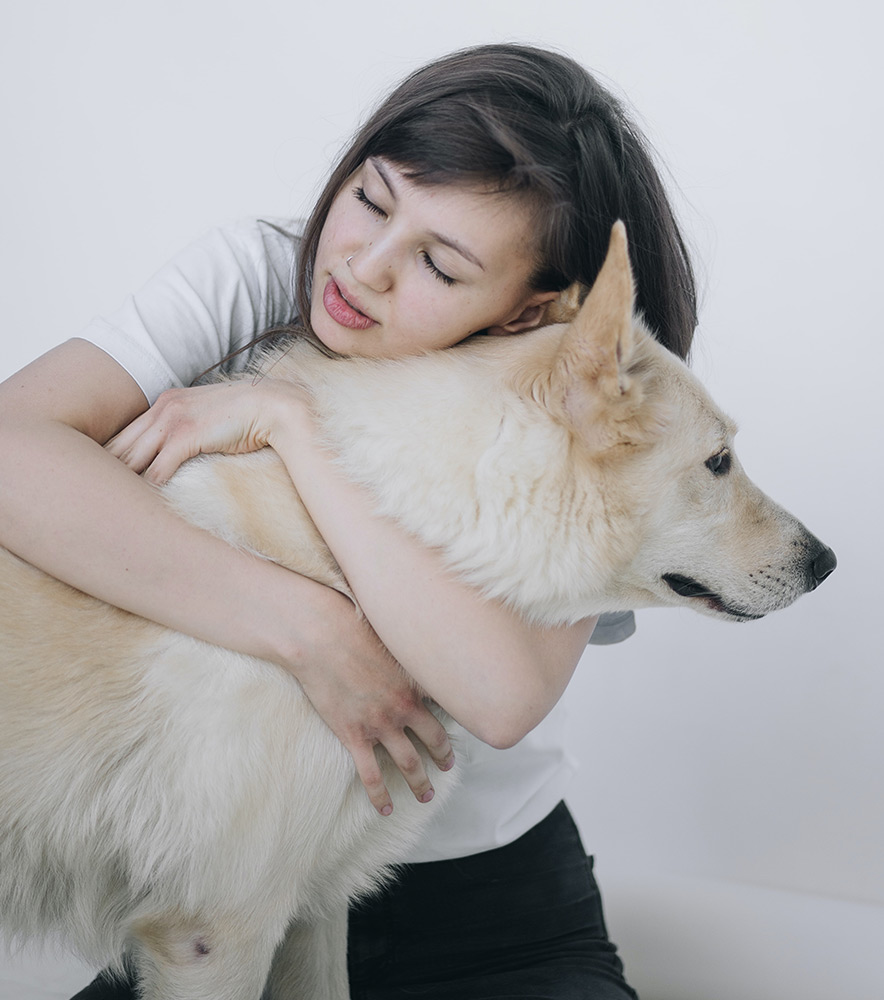Home Page › Blog › Can I Train My Own Psychiatric Service Dog?
Can I Train My Own Psychiatric Service Dog?

Disorders and disabilities affect every individual in unique ways. Each situation is unique depending on the person’s health status, needs, lifestyle, and environment. For psychiatric conditions, these factors are even more apparent, and every person’s case is distinctive. How a psychiatric illness affects life is different for each individual. Therefore, psychiatric service dogs can be more effective when their handlers train them.
What Are Psychiatric Service Dogs?
Therapy dogs, emotional support dogs, and psychiatric service dogs all work with people who have mental or emotional disorders. Unlike therapy dogs and emotional support dogs, however, psychiatric service dogs help one assigned person mitigate the effects of the handler’s disability by performing specific tasks.
The Americans with Disabilities Act (ADA) specifies what qualifies as a service dog and protects their use. A service dog must fulfill the following requirements:
- A service dog must be specifically trained to complete tasks.
- The service dog assists with one person’s disability.
- The service dog is needed by their handler to help detect or lessen the effects of their disability.
Psychiatric service dogs are vital to the well-being of their handler. Like most service dogs, they can receive training by their handler or through a professional trainer. However, because psychiatric disabilities impact people differently, it may even be preferable for a handler to train their own psychiatric service dog.
What Can a Psychiatric Service Dog Do?
A psychiatric service dog can receive training to help their handler by performing specific tasks. Among possible tasks are:
- Offer tactile stimulation during a panic attack.
- Awaken their handler from disturbing nightmares.
- Lead their owner away from crowds to a safe space.
- Fetch medication during psychiatric emergencies.
- Wake their handler if they’re groggy from medication.
- Alert their handler when it’s time to take medication.
- Act as a physical barrier between their handler and a distressing situation.
- Pay for items or deliver messages when their owner is too overwhelmed to interact with others.
- Enter and check a room or house before their handler to reduce fear of intruders.
- Guide their handler to exits during emergencies.
- Grounding their handler when their handler becomes overwhelmed, disoriented, or starts to hallucinate.
- Notify their handler if someone else is a hallucination or a real person.
This list is only a small example of all the tasks a psychiatric service dog can receive training for. What jobs they ultimately do depends on the needs of their handler.
Individualized Needs, Individualized Training
First and foremost, to have a legitimate service dog, a person needs to have a disability. Some disabilities are noticeable, like an amputation. Other disabilities are not spotted easily and are considered “invisible disabilities.” Psychiatric disorders are invisible disabilities because they’re not immediately apparent to the public.
Once a physician or therapist diagnoses a disorder or disability, they can evaluate the handler’s needs. After identifying those needs, the therapist and handler can determine how a psychiatric service dog can meet those requirements. Very often, it’s the handler who understands their psychiatric condition the most and can decide what tasks are most essential.
Although a professional trainer can train a psychiatric service dog, handlers may find training their dogs more practical. The more time a service dog spends with their handler, the more familiar they become with their handler’s needs. The time spent together will help service dogs to witness and recognize these changes.

Two Components to Psychiatric Service Dog Training
Training a psychiatric service dog may also depend on the level of functioning of the handler. To train a service dog, months of repetition, patient direction, and planning have to occur. Someone with a psychiatric disorder may benefit from a psychiatric service dog but might not have the capacity or temperament to train a dog independently. In these cases, getting a professional trainer to train the service dog could be the better option.
Psychiatric service dog training involves two main parts:
- Training for the General Public Access Test, which ensures that a service dog behaves appropriately at all times, especially in public areas.
- The specialized psychiatric tasks aimed at helping their handler, as defined together with their therapist.

Train Your Own Psychiatric Service Dog
A handler who wishes to train their own psychiatric service dog can always hire someone as a trainer for the public access portion, which is universal for all types of service dogs. However, for the psychiatric service tasks, teaching the dog themselves allows the handler to bond with the dog and train them to meet their individual needs. The bond that psychiatric service dogs have with their handler is a significant component of their therapeutic ability. Training their psychiatric service dog allows handlers to deepen that relationship and make their psychiatric service dog more effective.
Latest Posts

How to Bring a Service Dog to Disneyland
Trained service dogs are more than welcome to join their handlers at Disneyland. In this guide, we’ll explain Disneyland’s policies and give practical advice for bringing a service dog to Disneyland for the first time. Disneyland’s Service Dog Policies The Magic Kingdom is happy to welcome trained service dogs across most park locations! They kindly […]

Read More

Can Dogs Eat Tomatoes?
Yes! Dogs can safely enjoy tomatoes, but there are a few risks to be aware of so you can feed your dog responsibly. Fully ripe tomatoes (without the stems and leaves) can actually have nutrients that are good for your pup. Tomatoes have chlorogenic acid, an antioxidant that can have anti-inflammatory effects in cells. They’re […]

Read More

Can a Primary Care Doctor Write an ESA Letter?
Your family doctor, also called a primary care physician (PCP), can write a letter recommending an emotional support animal. We’ll explain what legally gives them that ability and explore what better options might be available for you. Why are Physicians Able to Write an ESA Letter? To turn your pet into an emotional support animal, […]

Read More








